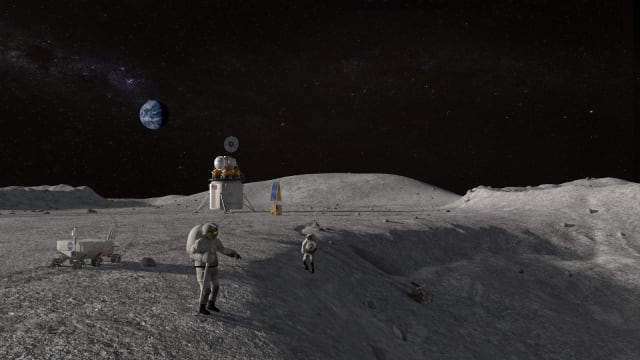
NASA
NASA knows that it will have to work with foreign space agencies and private companies to establish human presence on the Moon. That’s why it has introduced a set of guidelines called the “Artemis Accords” for organizations who want to take part in the Artemis program,which aims to land the first woman and the next man on Earth’s faithful companion by 2024.
NASA says the Artemis Accords are meant to “establish a common set of principles to govern the civil exploration and use of outer space.” As the agency’s administrator Jim Bridenstine explained during a briefing,it will serve as the basis for bilateral agreements with other countries,so potential partners would know what they’re agreeing to when they sign up for the Artemis program. To be clear,NASA is already working with other countries to build the Lunar Gateway — as CNBC notes,the Accords focus on nations that want to conduct activities in space.
The agency shared an outline of the Accords on its website,starting with the requirement for participants to conduct activities meant for peaceful purposes only. Artemis partners will also have to be transparent with their policies,have to utilize open international standards or develop new ones for the sake of interoperability and have to plan for the mitigation of orbital debris.
Partner nations also have to commit to providing assistance to astronauts in distress and to releasing the science data they collect to the public. They have to promise to collect resources from the Moon,Mars and asteroids under the auspices of the Outer Space Treaty,as well. The Accords emphasize a few of the Treaty’s Articles in particular,including one that says that the Moon and other celestial bodies are “not subject to national appropriation by claim of sovereignty,by means of use or occupation,or by any other means.”
Brindenstine said during the briefing:
“I want to see private companies going to the moon. I want to see international partners joining with us on the Artemis program. I want to see private companies and NASA going to Mars. And,in order to achieve that,we have to reconsider the very,very stringent kind of requirements that are placed on going to these other planetary bodies.”











 加载中,请稍侯......
加载中,请稍侯......
Comments